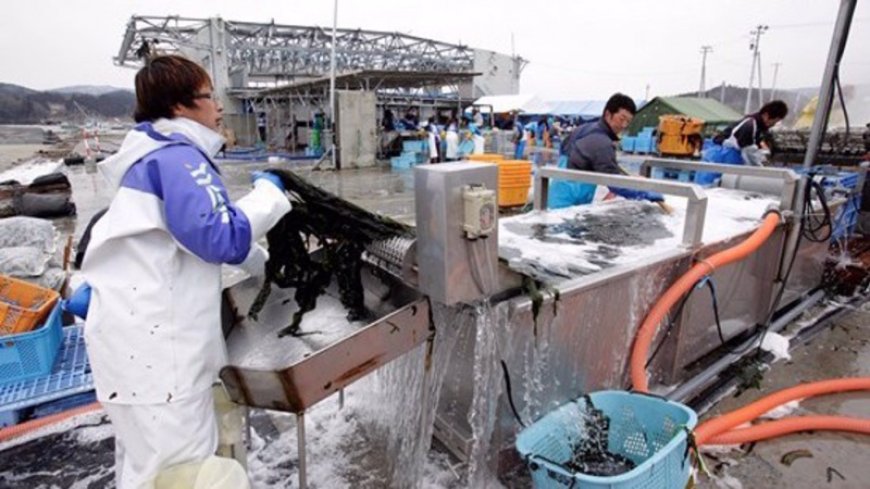Fukushima fish found with 180x limit of radioactive cesium
Fukushima fish found with 180x limit of radioactive cesium

A Japanese utility holding company that ran the closed Fukushima Daiichi nuclear power plant said that a fish caught in May near the accident area had 180 times the safe limit of radioactive cesium for Japan. Tokyo Electric Power Company Holdings Inc. (Tepco) said on Monday that black rockfish caught May 18 near the nuclear power plant's drainage exits had 18,000 becquerels per kilogram of cesium-137, which is more than the legal limit of 100 becquerels per kilogram. The company also stated that between May 2022 and May 2023, 44 fish with cesium levels above 100 becquerels per kg were found in the port of the Fukushima power station. Ninety percent of these fish were caught in or near the inner harbor.
It said that rainwater from the areas around reactors one, two, and three that melted during the 2011 disaster is running into the inner harbor, where the rockfish was caught in May. Tepco says that there are more than 100,000 becquerels per kg of cesium in the bottom silt inside the breakwater. "Immediately after the accident, contaminated water flowed into the port of the Fukushima Daiichi Nuclear Power Plant," the company said. "Since 2012, Tepco has regularly removed fish from the port, using fishing nets to keep the fish from leaving the port." After nets were put up in January 2016 to keep fish that might be contaminated in the area, regular checks on the fish on the inner wall stopped.
Tepco, on the other hand, said, "When a black rockfish was caught off the coast of Soma [about 50 km north of the plant] in January 2022 with radioactive levels above legal standards, we restarted sampling the area and put up more Nets to stop fish from leaving port. In 2011, an earthquake and a tsunami caused several meltdowns at the Fukushima Daiichi nuclear power plant. The Japanese government has chosen to dump about 1.3 million cubic meters of contaminated water from the damaged plant into the sea next month. The operation was given the green light by the International Atomic Energy Agency (IAEA), which said that Japan's pollution program wouldn't have much of an effect on the environment. But nearby countries in the area were worried about the move. If the water release goes as planned, Hong Kong has said it will stop importing food from ten parts of Japan.
China is the biggest buyer of Japanese fish products, and it has already said that it will increase its tracking and monitoring of radioactive materials to make sure that food from Japan is safe to eat even though it is banned in 10 prefectures. Beijing said that the goal of the move is to stop toxic Japanese food from being sent to China and to protect Chinese customers' food safety. South Korea has also increased its tests of Japanese food products for radiation. After the radiation was found in February 2022, shipments of black rockfish caught off of Fukushima Prefecture were stopped and have not started back up yet. The sample that was tested had a lot of radioactivity, which led the government to think that it came from the port of the nuclear power plant.













































